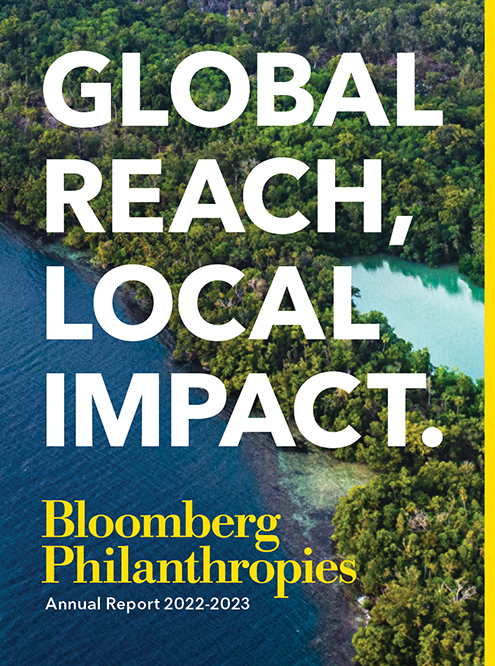Ensuring Safer, Longer, Healthier Lives
Bloomberg Philanthropies’ Public Health program takes on the world’s leading causes of death from noncommunicable diseases and injuries. We follow the data, build strong partnerships with governments and other organizations, and spread proven solutions to save lives.
Overview
Reducing global tobacco use and youth e-cigarette use in the U.S.
Improving road safety
Promoting healthy diets to combat obesity
Preventing cardiovascular diseases
Strengthening health data collection in low- and middle-income countries
Mobilizing cities to reduce noncommunicable diseases and injuries
Combating the U.S. overdose epidemic
Protecting access to reproductive healthcare
Investing in drowning prevention
Addressing challenges to U.S. life expectancy with the Johns Hopkins Bloomberg School of Public Health
Reducing the Use of Tobacco and E-Cigarettes
Since 2007, Bloomberg Philanthropies has led global efforts to reduce tobacco use in more than 110 low- and middle-income countries. Working with national and local governments, we have advocated for a package of proven policies that can save lives, such as banning smoking in public places, raising taxes on tobacco products, and banning tobacco advertising. In February 2023, we announced another major investment in our work to continue passing strong tobacco control policies. Globally, our efforts have helped drive down global cigarette sales, with roughly 750 billion fewer cigarettes sold in 2021 compared to 2012. Based on progress to date, we are projected to save over 35 million lives by 2030.
Beginning in 2019, we have also worked to reduce teen e-cigarette use in the United States, an epidemic that threatens to hook a new generation on nicotine. To date, the program has helped pass 79 state and local bans on flavored e-cigarettes, which have been shown to attract younger users, including 25 new bans in 2022. In November 2022, we helped to defend California’s flavored tobacco ban from a ballot referendum supported by the tobacco industry that sought to overturn it. With our support alongside partners like the Campaign for Tobacco-Free Kids, voters overwhelmingly upheld the ban in a major victory for our work.

Global Reach, Local Impact: Mexico
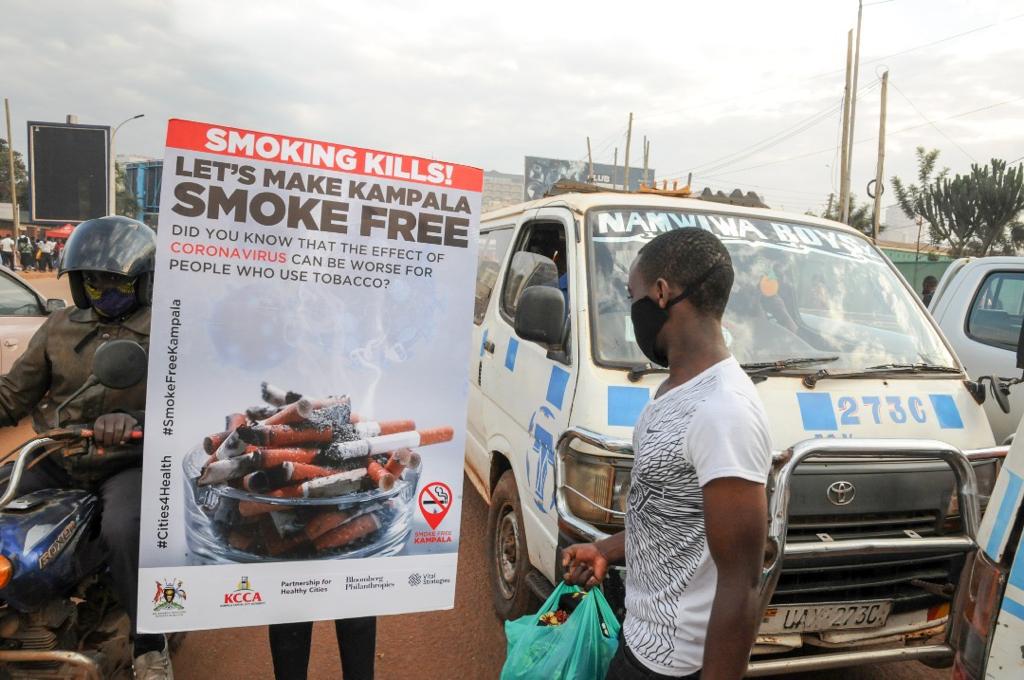
Reached
69
69countries with smoke-free laws, up from 10 in 2007.
Helped cut global smoking rates by
23%
23%over 12 years
Helped pass
79
79U.S. state and local bans on flavored e-cigarettes
With our support, Kampala, Uganda, has worked to increase enforcement of the country’s national smoke-free law.
Strengthening Global Road Safety
Bloomberg Philanthropies works in low and middle-income countries to prevent road traffic crashes, which kill roughly 1.3 million people and injure up to 50 million every year. Our initiative helps implement proven interventions that protect everyone on the road, such as reducing speeding and drinking and driving, improving road infrastructure and vehicle safety standards, increasing the use of helmets and seatbelts, and strengthening data collection. In 2022, our support helped Colombia and Mexico pass major national laws that aim to save lives by reducing speeding and other dangerous road behavior and improving vehicle safety. In total, we have helped strengthen 100 national and subnational laws.
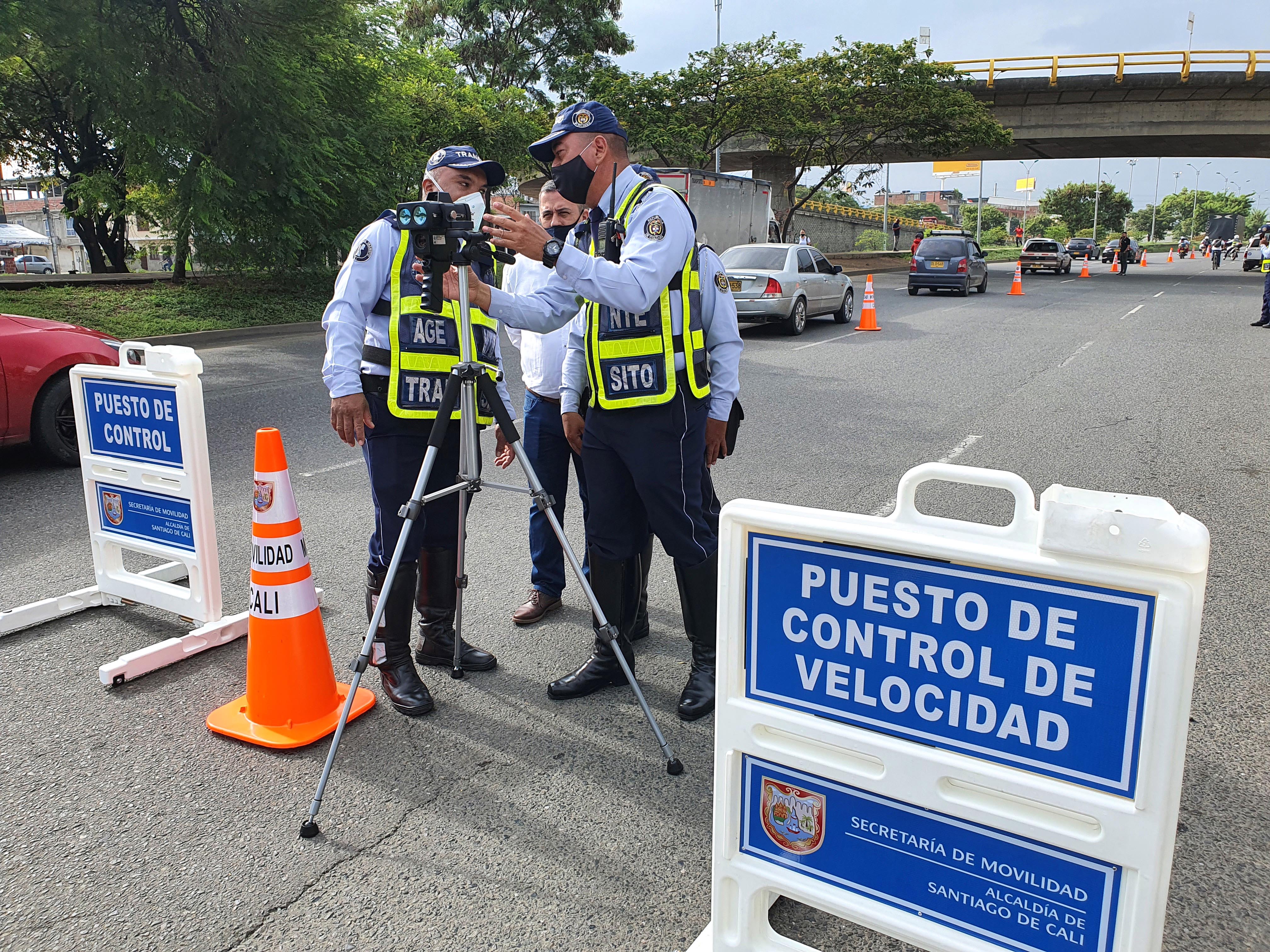
Global Reach, Local Impact: Colombia
Videos
Watch How We Are Improving Road Safety and Saving Lives
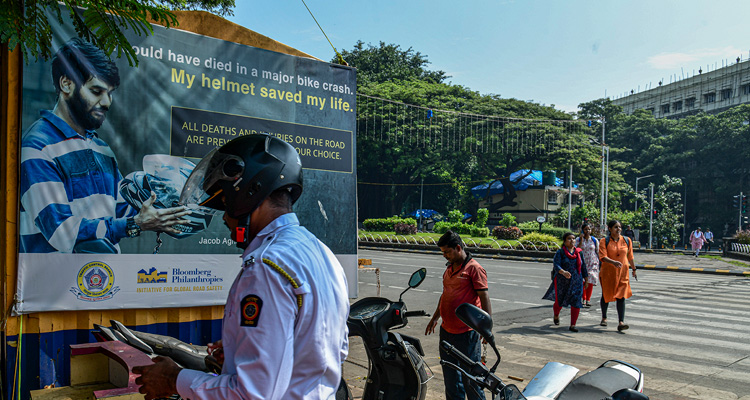
Nearly
4billion
4billionpeople protected by at least one new or improved road safety law.
Progress to date is projected to save
312,000
312,000lives.
We partnered on a campaign in Mumbai to increase helmet use and save lives from traffic crashes.
Mobilizing Cities on Public Health Challenges
Launched in 2017 through Mike’s role as World Health Organization Global Ambassador for Noncommunicable Diseases and Injuries, the Partnership for Healthy Cities is a network of 70 cities focused on reducing noncommunicable diseases and injuries.
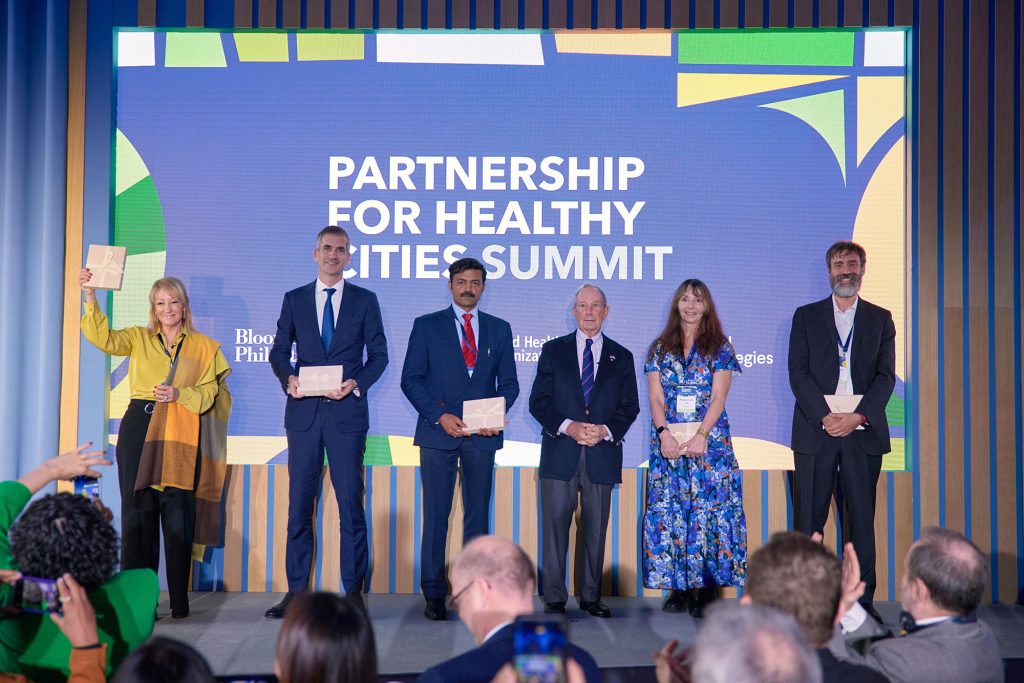
In March 2023, we hosted the first Partnership for Healthy Cities Summit in London with over 200 mayors and city delegates, where we recognized five cities for their outstanding efforts on public health challenges: Montevideo, Uruguay, for food policy; Mexico City, Mexico, for road safety; Vancouver, Canada, for data management and surveillance; Athens, Greece, for overdose prevention; and Bengaluru, India, for tobacco control.
Promoting Healthy Diets to Prevent Diet-Related Diseases
Bloomberg Philanthropies leads global work to promote policies that tackle unhealthy diets, which contribute to rising obesity rates and other diet-related diseases. Together with partner organizations, researchers, and emerging young leaders, our initiative supports the adoption and evaluation of key policies, such as restrictions on unhealthy food marketing, front-of-package warning labels, taxes on unhealthy foods and beverages, and healthier food in schools.
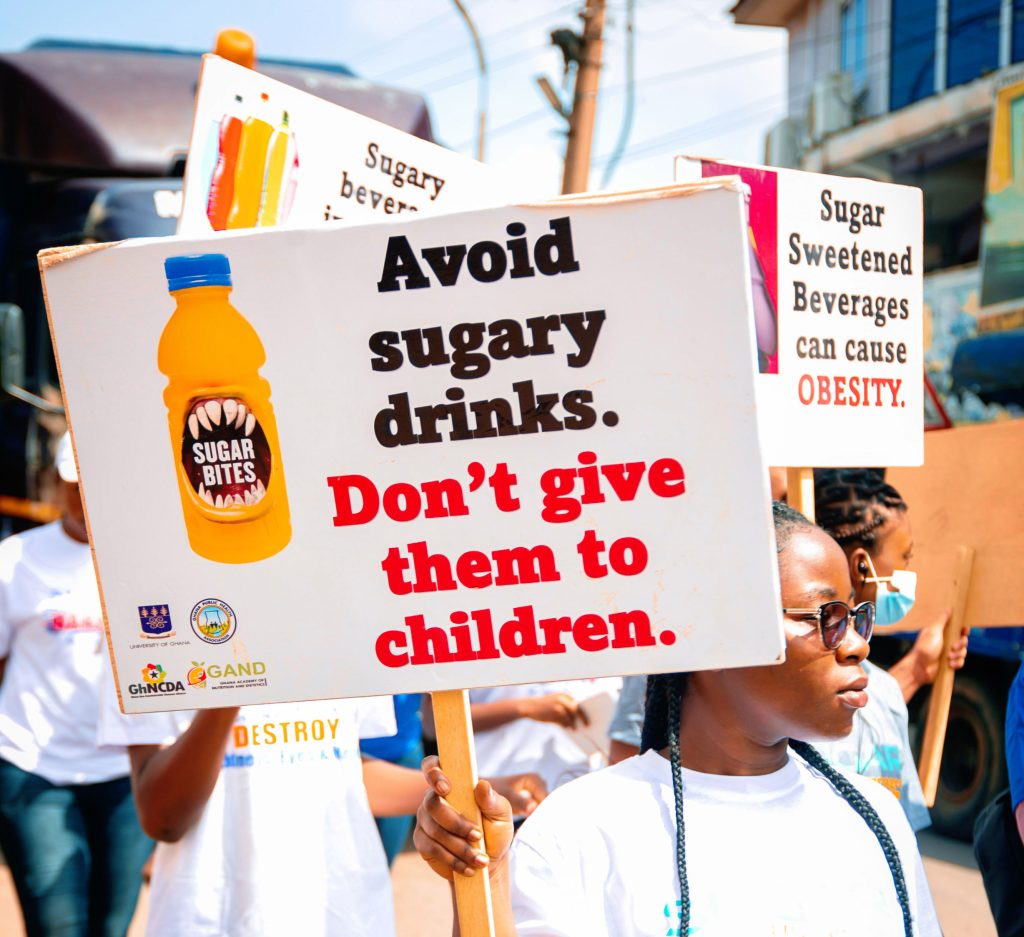
Spotlight
Food Policy
In 2022, our partners in Colombia secured major wins in the country. After nearly six years of advocacy, Colombia’s Congress approved a tax on sugary drinks and ultra-processed products, making it one of just a handful of countries to tax both categories.
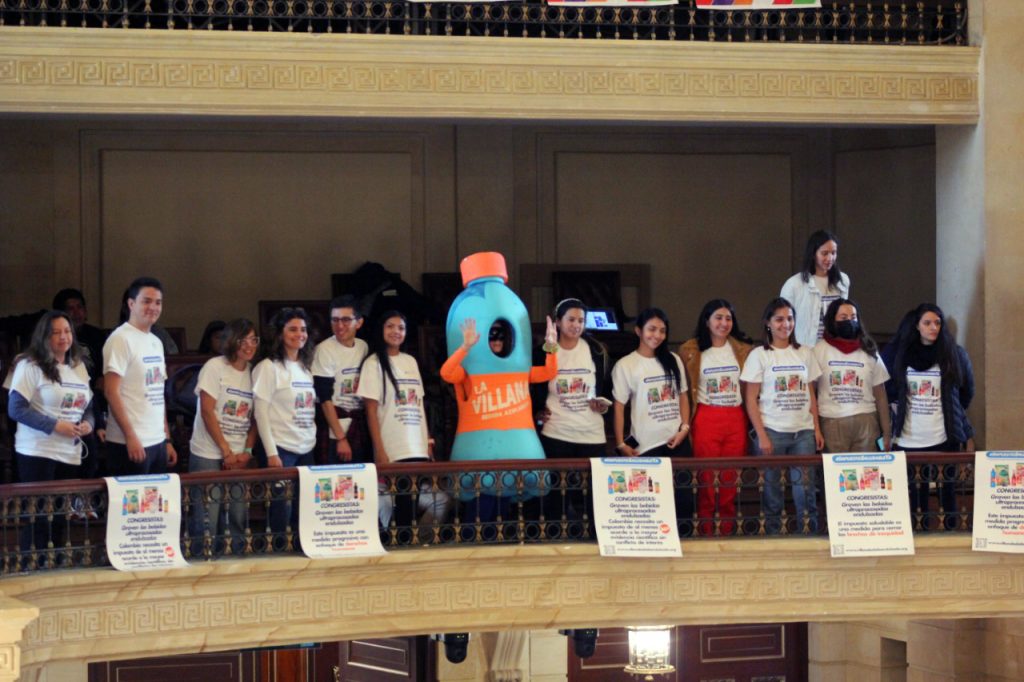
At Colombia’s National Congress, our partners advocated for taxes on sugary beverages and ultra-processed foods.
Following the tax approval and in the face of intense industry opposition, the Ministry of Health finalized a strong regulation for front-of-package warning labels based on our partners’ recommendations. Because of our partners’ efforts, a court also ordered the ministry to create a committee to monitor implementation, free of influence from the food and beverage industry. It marked the first time that a court authorized civil society to monitor a public health regulation.
Preventing Cardiovascular Diseases
Through a partnership with Resolve to Save Lives, an initiative founded by Dr. Tom Frieden, former director of the U.S. Centers for Disease Control and Prevention, Bloomberg Philanthropies also supports efforts to prevent cardiovascular diseases, the world’s leading cause of death. The initiative works predominantly in low- and middle-income countries and focuses on three key strategies: improving treatment of high blood pressure, eliminating artificial trans fats, and reducing sodium. Bloomberg Philanthropies has directed funding to help reduce risk factors in over 60 countries, including priority countries like Bangladesh, China, Ethiopia, India, and countries throughout the Americas.
Improving Health Data Collection and Policymaking
Launched in 2015, our Data for Health initiative works with low- and middle-income countries to improve the collection and use of critical birth, death, and health data. Globally, many countries lack strong systems to collect this data, which prevents them from effectively allocating resources or designing policies and leaves millions of people without access to medical care.

Global Reach, Local Impact: Tanzania
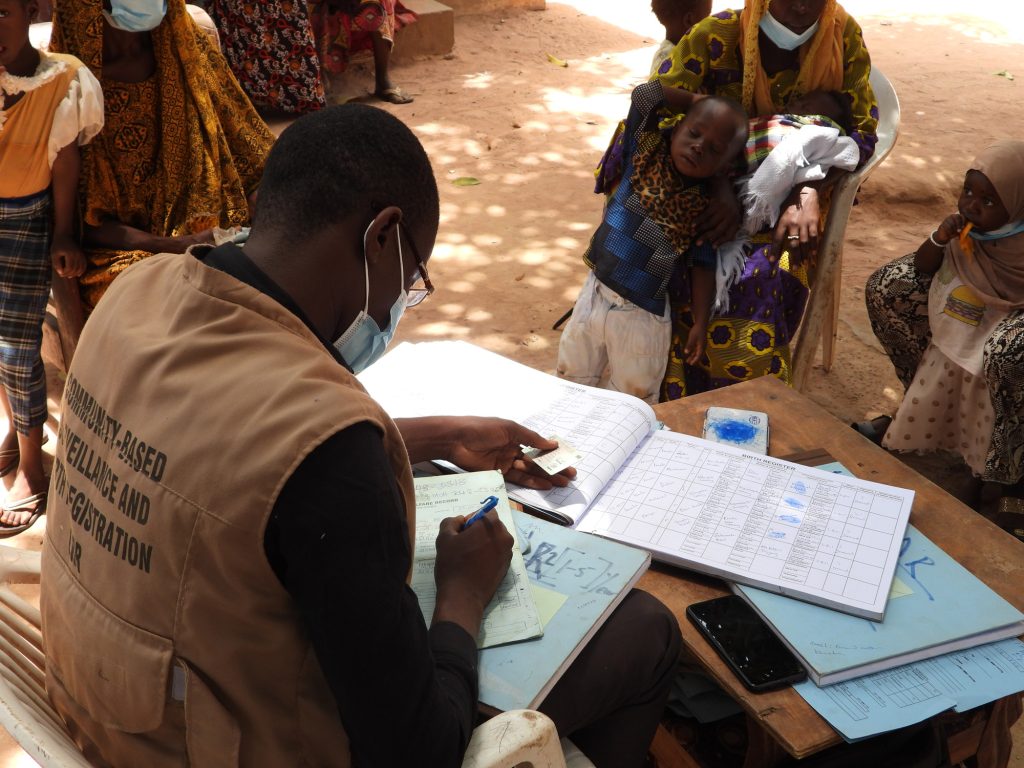
More than
860million
860millionpeople now covered by stronger data collection practices
10 countries passed
41
41new policies based on improved data collection and use
Community health volunteers facilitated birth and death registration in rural Gambia with our support. Credit: Vital Strategies
Preventing Drowning Deaths
To address a leading cause of injury-related deaths, Bloomberg Philanthropies supports local, data-driven solutions to save lives from drowning deaths in countries with high drowning rates, such as Bangladesh, Ghana, Uganda, and Vietnam.
Spotlight

In Vietnam, over 26,000 children have now passed a survival swimming course that we supported.
Drowning Prevention
Beginning in 2012, when we discovered that drowning was the leading cause of death for children under five in Bangladesh, we tested solutions to save lives. We funded more than 2,500 community daycare sites to supervise and help educate kids at the same time and found that they reduced drowning deaths by as much as 88%. In 2022, our success spurred the government of Bangladesh to take over the program and commit to scaling it from 50,000 children to 200,000 annually.
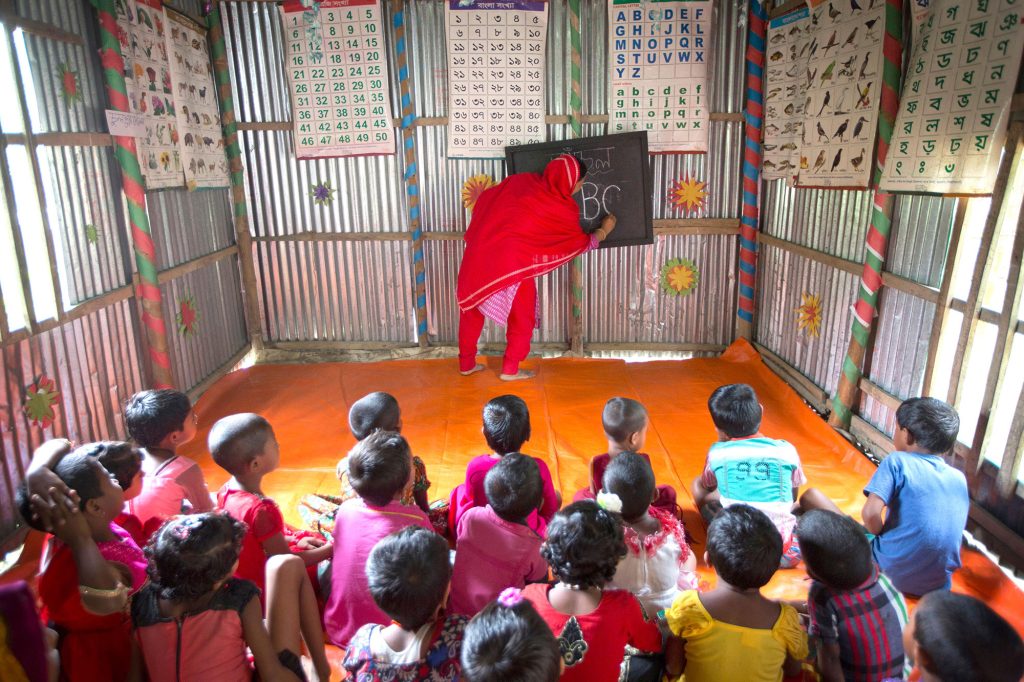
Children in Bangladesh attended a daycare site supported through our drowning prevention program.

Global Reach, Local Impact: Vietnam
Defending Access to Reproductive Healthcare
In 2022, the U.S. Supreme Court overturned Roe v. Wade in its ruling on Dobbs v. Jackson Women’s Health Organization, eliminating federal protections for the right to abortion. Mike has continued to strongly support organizations that are fighting to protect and expand abortion rights, as he has for decades. Following the decision, he was a leading supporter in successful state advocacy efforts. He helped elect pro-choice majorities to state supreme courts through public education campaigns, backed ballot measures in Kansas, Kentucky, and Michigan, and supported pro-choice candidates nationwide. After many states criminalized abortion, our team worked with partners to provide legal resources and aid for providers, patients, and supporters.
Training a New Generation of Public Health Leaders
In 2016, we established the Bloomberg American Health Initiative at the Johns Hopkins Bloomberg School of Public Health to address declining U.S. life expectancy and train new public health leaders. The program focuses on five major health threats facing the United States: addiction and overdose; risks to adolescent health; environmental challenges; food systems for health; and violence.

It supports full scholarships for Master of Public Health and Doctor of Public Health fellows, with the requirement that each prospective fellow apply with a collaborating organization and continue working with that organization in the community for at least a year after graduation. To date, 339 students have graduated or are currently enrolled in the program.

Global Reach, Local Impact: Philadelphia
Combating the U.S. Overdose Epidemic
To address record overdose deaths and declining life expectancy in the United States, Bloomberg Philanthropies leads efforts to combat the overdose crisis by increasing access to medication treatment and supporting harm reduction interventions. Our initiative focuses on three core strategies: developing and implementing effective policies and interventions in seven key states; creating and disseminating tools that can guide all states; and pushing for federal reform through lobbying, education, and awareness. In 2022, the initiative helped pass important legislation in Kentucky, Michigan, Pennsylvania, and New Mexico, as well as nationally.
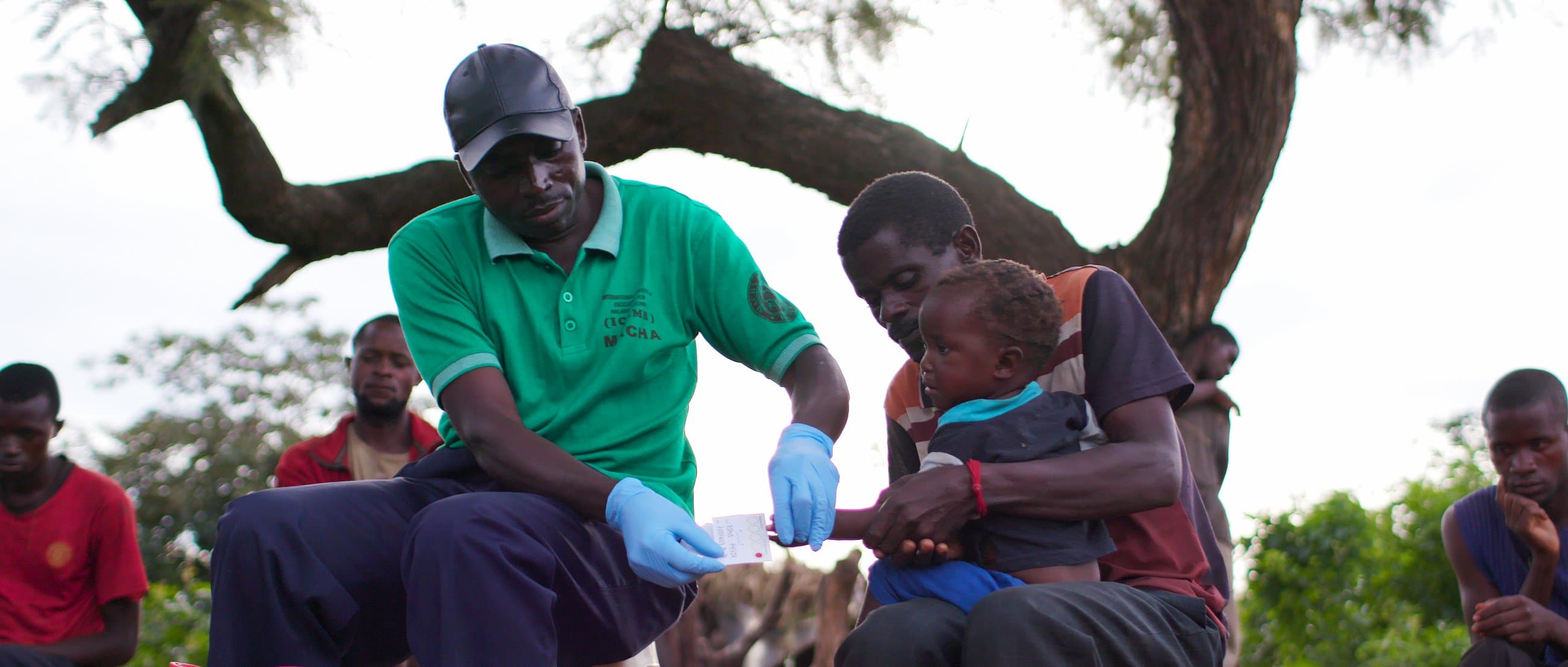
Bloomberg Philanthropies’ Public Health program
Top photo: Children in Vietnam received survival swimming classes with support from our drowning prevention program, which identifies local solutions to save lives from drowning.



